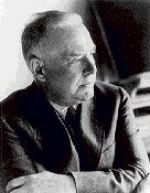Behold a summer lotus with
THEBOOKJEANIE
My good friend in Rhode Island recently sent me this photo, taken when she spotted a small pond covered in lotus blossoms. For centuries the lotus has been a subject beloved by poets:
"In the scriptural language and sacred poetry of Hinduism and Buddhism, the lotus perfectly embodies the soul, rising up through the murkiness of worldly experience until it reaches the surface of the spiritual realm and blooms, vibrant and pure, free from all taint and attachment."
from Poetry Chaikhana.
Book Reviews
and a wicked of humor, while at the same time feeling like a grenade ready to explode and wreak havoc on those who love her. She pulls away from her growing relationship with Gus, fearful that she will just bring more sorrow into his life. But Gus perseveres, determined to be a part of Hazel's life, however long that may be. Thanks to a "wish foundation" the two travel together to Amsterdam for a meeting with the author of their favorite book, An Imperial Affliction, an experience that profoundly changes the direction of their relationship. Although Green is easily able to resurrect our feelings of awkward adolescence and young love, it is the relationship that Hazel has with her parents that most adult readers will find deeply touching and memorable. In a uniquely authentic voice, Hazel tells her story - it's one that you won't forget.
Maria Semple, former television writer (Arrested Development, Mad About You), has hit her mark with her second novel Where'd You Go, Bernadette. An ideal selection for a long plane journey, this riotous novel had me hooked after just a few pages - so much so that I neglected to produce a new post for this blog last weekend. Don't start this book unless you have time to read it straight through otherwise you will be very frustrated during the time you have to put it down. With an irreverent sense of humor, Semple follows the unraveling of a genius architect named Bernadette Fox, wife of the innovative darling of the computer industry Elgie Fox, and mother of 14-year-old Bee, a smart and savvy girl with a plan to take her family on a trip to Antarctica. We are alerted right away to the unusual family dynamic and of course we know that at some point Bernadette will disappear from our epistolary narrative. That format, in this case a collage of emails, transcripts, documents, personal correspondance, liveblogs, diaries, and even FBI reports, may be the reason why some readers are put off by this book. You have to enjoy piecing together the story from multiple sources and a variety of perspectives. The plot is much too convoluted to summarize but the city of Seattle is a major character. Part of the reason that Bernadette has retreated from life is that life has become unbearable since the family's recent move to Seattle, a place of dull conformity in her opinion. Semple's tongue-in-cheek riff on this beloved-city-to-many, the intense Microsoft culture of cool efficiency, and the overzealous nature of private school mothers is priceless. At the heart of this story, though, is the amazing relationship between a singular mother and the loving daughter who is determined to find her. Sit back and enjoy.
The Garner Heist: the True Story of the World's Largest Unsolved Art
Theft - Ulrich Boser
My Beloved World - Sonia Sottomayor
I Can't Complain: (All Too) Personal Essays - Elinor Lipman
The Miracle of Mindfulness - Thich Nhat Hanh
 | The house was quiet and the world was calm by Wallace Stevens |
The house was quiet and the world was calm.
The reader became the book; and summer night
Was like the conscious being of the book.
The house was quiet and the world was calm.
The words were spoken as if there was no book,
Except that the reader leaned above the page,
Wanted to lean, wanted much to be
The scholar to whom his book is true, to whom
The summer night is like a perfection of thought.
The house was quiet because it had to be.
The quiet was part of the meaning, part of the mind:
The access of perfection to the page.
And the world was calm. The truth in a calm world,
In which there is no other meaning, itself
Is calm, itself is summer and night, itself is the reader leaning late and reading there.
The reader became the book; and summer night
Was like the conscious being of the book.
The house was quiet and the world was calm.
The words were spoken as if there was no book,
Except that the reader leaned above the page,
Wanted to lean, wanted much to be
The scholar to whom his book is true, to whom
The summer night is like a perfection of thought.
The house was quiet because it had to be.
The quiet was part of the meaning, part of the mind:
The access of perfection to the page.
And the world was calm. The truth in a calm world,
In which there is no other meaning, itself
Is calm, itself is summer and night, itself is the reader leaning late and reading there.
So keep reading! See you next week. . .












Beautiful poem. Exactly so.
ReplyDelete